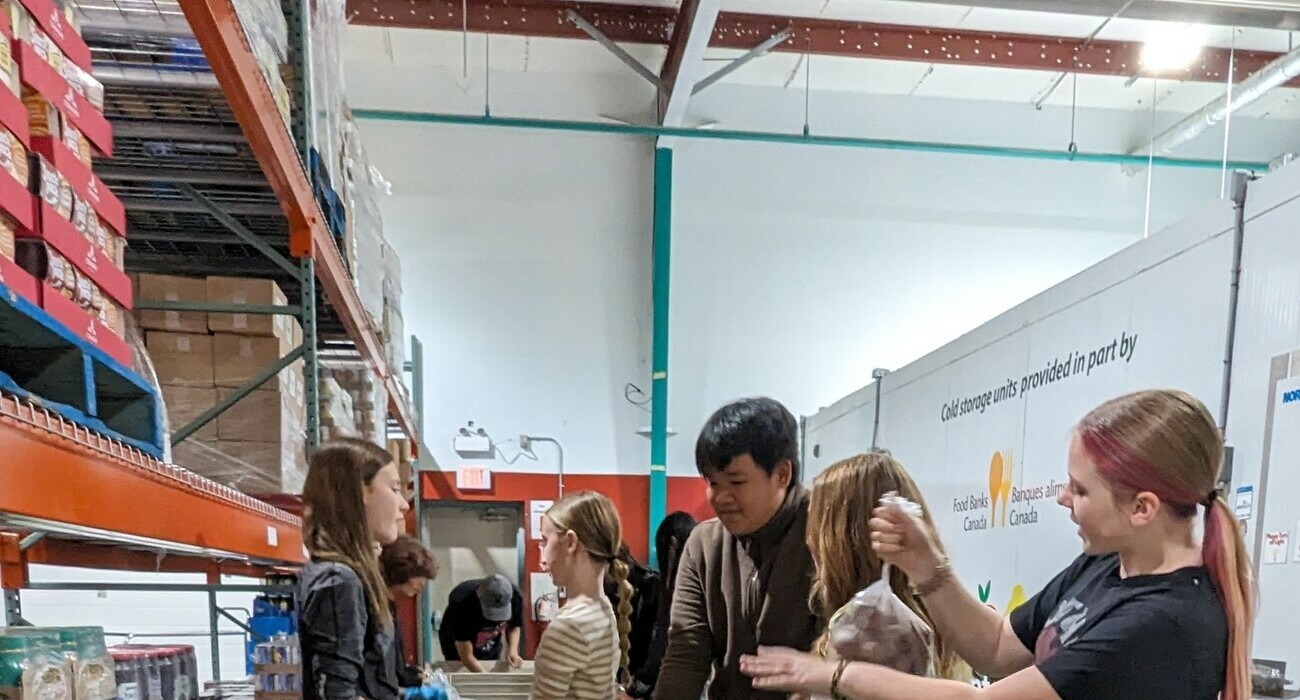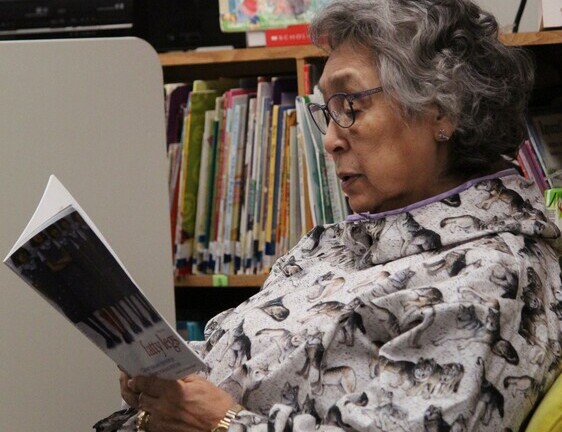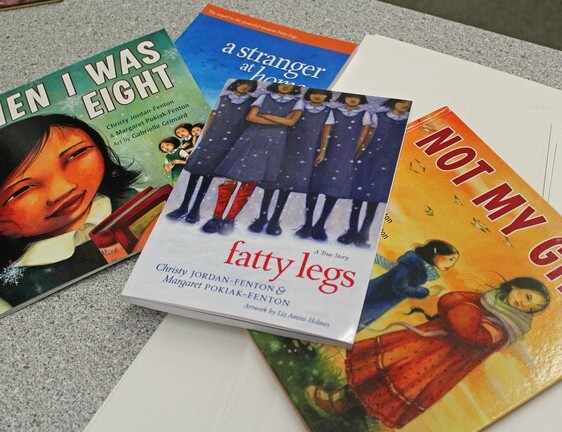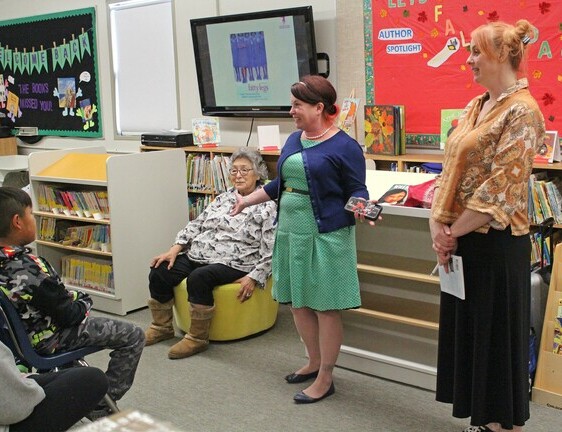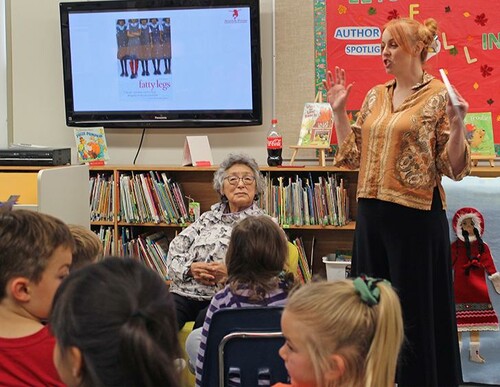
MILO – Story time in the Milo Community School library took on a little more serious subject matter than usual on this wintery afternoon.
Instead of fairy tales, students from kindergarten to Grade 9 listened intently to the story of Residential School survivor Margaret Pokiak-Fenton as told by daughter-in-law, Christy Jordan-Fenton.
The author read to students from a couple of books she has written about Margaret’s true-life experiences, including ‘Fatty Legs,’ with the Inuvialuk elder adding first-hand accounts in between. Milo Principal Kerry Aiken has been a big fan of the book since it came out 10 years ago, and knew it would be a perfect fit for her school on the heels of Orange Shirt Day.
“The book has been a really great way to open up the conversation about Residential Schools in a way that shows the injustice, without focusing on many of the more frightening aspects of the schools for our younger students,” she says.
Margaret and Christy, who make about 100 presentations like this each year, stopped at nearby Arrowwood Community School earlier that day. If people are to fully absorb and invest some emotion into what happened to an eight-year-old girl in a Residential School in the high Arctic more than 70 years ago, the author says it helps if they can see an element of themselves in the story
“You can’t tell them all the facts and figures and the horrific things that happened responsibly,” says Christy of the younger audience. “But you can tell them what it’s like when you go home and you can’t speak the same language with your mom, so you can’t speak to each other, and other things that they can handle at their age and is appropriate.”
Sharing Margaret’s story with school children is especially gratifying for the author as she says they are quick to understand what’s right and what’s wrong.
“They are just wide open and they feel for another child in a different place and time who went through something really awful,” says Christy. “They don’t say, ‘oh, but, but, but. . . and justify it.”
Children can be great teachers of their parents when a conversation is sparked at home. When mom or dad can’t answer those questions satisfactorily, she says they may need to look inward at what they’ve been taught about Residential Schools and racism.
Awareness of the ongoing impact of Residential Schools has grown since that first book was written. Christy hopes students just being introduced to Margaret’s story realize some “really horrible” things happened, but Indigenous students survived by being “really clever and being really strong in their spirit.”
‘Fatty Legs’ recounts the experiences of a spirited young girl whose overpowering desire to learn to read and write outweighed warnings of the terrors of Residential Schools. There, her long hair was sheared off; her name was changed; she was forbidden to speak her native language; and she endured countless efforts to break her will.
Margaret’s story only surfaced once Christy pressed her for further details about her early life so she could share them with her children. She kept those Residential School memories inside her for 65 years because she didn’t want her grandchildren to know she’d been “naughty” when she defied her tormenters.
“We have things inside us, but when we let go of our secrets we get to be the hero of our own story,” Christy told the Milo students. “You get to own your own story,”
In between those stories and messages, Christy and Margaret fielded questions from students. A common one asked of Margaret is how she could possibly go back to that same Residential School after she had returned home for a time.
Margaret’s younger siblings were about to attend the Residential School for the first time, and she felt a responsibility to look after them. Her family also realized how important it was to learn how to read, write and do math if they were to safely navigate their way through a world soon to be dominated by outsiders.
When asked if she’d still go to Residential School again if she had the chance to do things over, Margaret says she would.
“It wasn’t that it was a good place, but when you consider there are girls in Afghanistan who literally risk their lives to learn to read – or children who walk through minefields elsewhere to go to school every day – you start to realize how important (education) is, even though you are risking so much to do it,” explained Christy.
Margaret and Christy now live in Fort St. John in northeastern B.C.

